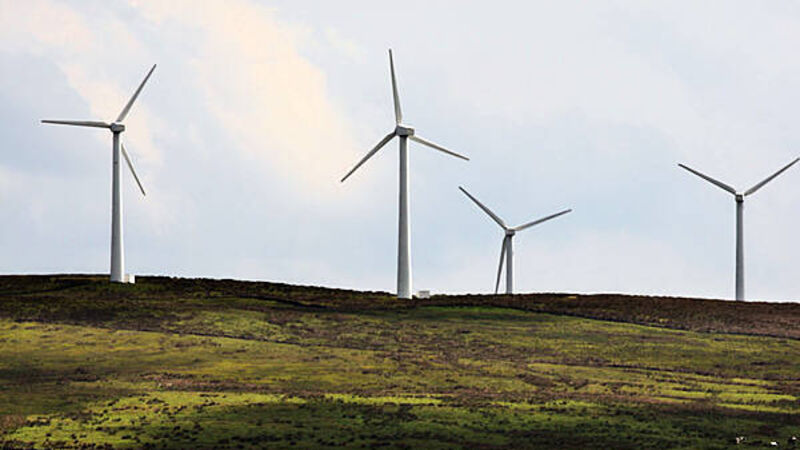Urgent action needed as EPA identifies ‘significant risks’ due to climate change

By Cillian Sherlock, PA
Urgent action is required to mitigate the risks of disruption to energy and transport infrastructure due to climate change, according to a new report.
There is “significant risk” of disruption and damage to communications as well as energy distribution infrastructure due to extreme wind, the Environmental Protection Agency (EPA) has said.
Ireland’s exposure to these risks was recently demonstrated through the unprecedented number of power and communications outages from Storm Éowyn in February.
Urgent action is also needed within five years over the threat of disruption and damage to buildings and transport infrastructure due to extreme wind, coastal erosion and coastal flooding.
Ireland’s coastline is already experiencing the impacts of coastal erosion and flooding.
The EPA has identified 115 risks from projected changes in climate conditions, 43 of which fall into the significant category.
Additional significant risks it says should be prioritised for further investigation in the next five years include risks to the built environment and human health from flooding and heat.
The agency has also projected potential “catastrophic” impacts on certain sectors by the end of the century.
It comes as part of the National Climate Change Risk Assessment which is designed to give government, businesses, and communities the best available information to prepare for resilience against future impacts.
The risks span all sectors of the economy, society, and environment from energy, transport and communications to water security, public health, food production and supply and ecosystems.
Ireland’s climate is projected to get warmer, with average temperature increasing across all seasons and on an annual basis – while the number of heatwaves is also projected to increase.
In addition, the country is set to become wetter overall with an increase in average rainfall.

That rainfall will come as part of increased seasonality, meaning wetter winters and drier summers – with more frequent droughts projected for summer and spring months.
The EPA also said there will be an increased exposure to coastal flooding with a projected rise in sea levels.
While there is a projection for a minor decrease in average windspeeds, northern Europe could be affected by fewer but stronger windstorms – although projections remain uncertain.
EPA director general Laura Burke said the report “clearly shows how risks cascade across sectors”.
She said: “Recent events, such as Storms Darragh and Eowyn, demonstrated how damage to critical infrastructure such as energy, water supply, transport and communications networks in turn give rise to impacts on human health, biodiversity and the financial system.
“Addressing these risks in an integrated and consistent way is key to achieving our national climate resilience objective.”
The report also identifies potential opportunities arising out of warmer temperatures, increased precipitation, and warmer seas.
These included a longer season for outdoor activities with potential economic benefits through tourism, increased hydropower generation due to rainfall, greater marine species diversity, and a longer growing season and improved livestock nutrition.
However, it also warns of the potential impacts on Ireland of the experiences of climate change abroad.
The report says there will be a need to manage risks associated with food security, supply chains, economic stability, and migration.
Ireland relies heavily on imports for vegetables, fruits, grains, fertilisers and animal feed.
Disruptions in the supply of food due to extreme weather events, can lead to shortages, increased food prices, and potential food insecurity, especially for vulnerable households.
Climate change is increasingly recognised as a critical threat to global supply chains, impacting logistics, manufacturing, and energy networks.
These disruptions can lead to significant economic losses and supply shortages worldwide, including in Ireland.
Meanwhile, extreme weather events caused by climate change can lead to forced displacement and changes in international migration patterns.









